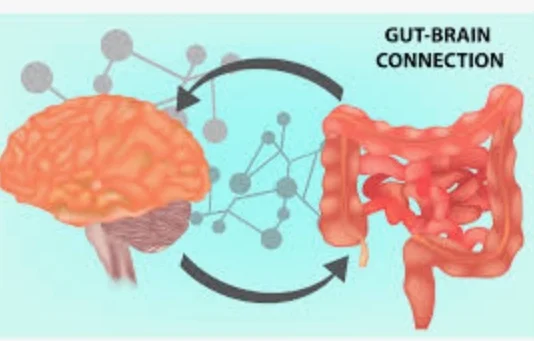
Have you ever felt “butterflies” in your stomach before a big event? That sensation isn’t just in your head — it starts in your gut. The phrase “gut feeling” isn’t just a metaphor. Recent research has uncovered the profound gut-brain connection, revealing that your digestive system plays a crucial role in your mental well-being. This fascinating link between the two is reshaping how we understand both physical and mental health.
What Is the Gut-Brain Connection?
The gut-brain connection refers to the bidirectional communication between your gastrointestinal tract and your brain. This interaction is facilitated by the vagus nerve, a major component of the nervous system, and the enteric nervous system, often referred to as the “second brain.”
According to Harvard Health Publishing, the gut produces around 95% of the body’s serotonin — a neurotransmitter that plays a key role in mood regulation. Read more here.
How Gut Health Influences Mental Well-Being
Numerous studies indicate that a healthy gut can help manage symptoms of anxiety, depression, and even stress. On the flip side, gut imbalances — often caused by poor diet, antibiotics, or chronic inflammation — may contribute to mental health disorders.
- Probiotics and prebiotics: These promote healthy gut flora, which in turn supports balanced mood and cognitive function.
- Short-chain fatty acids (SCFAs): Produced by good gut bacteria, SCFAs help reduce inflammation in the brain.
- Leaky gut syndrome: This condition can allow harmful substances to enter the bloodstream, potentially triggering mood disturbances.

Signs Your Gut Might Be Impacting Your Mind
🧠 Common mental symptoms linked to gut health:
- Brain fog
- Low energy or motivation
- Anxiety or irritability
- Sleep disturbances
🍽️ Common gut-related signs:
- Bloating or gas
- Irregular bowel movements
- Food sensitivities
- Cravings for sugar or processed foods
📝 Pro Tip: Keeping a food and mood journal can help track how your gut reacts to certain foods and how it correlates with emotional changes.
Strengthening the Gut-Brain Connection Naturally
1. Eat for Mental Health
Incorporate fiber-rich fruits, fermented foods, and omega-3 fatty acids. Think: yogurt, kimchi, chia seeds, salmon, and leafy greens.
2. Practice Mindful Eating
Stress eating disrupts digestion. Chew slowly, savor meals, and avoid distractions.
3. Stay Active
Exercise increases gut microbial diversity and boosts mood-enhancing neurotransmitters.
4. Manage Stress
Techniques like deep breathing, meditation, and journaling directly impact gut motility and microbial health.
Practicing mindfulness is another effective way to support both your mental health and digestion. Learn how to get started with mindfulness in this beginner-friendly guide.

Substances to Avoid for a Healthy Gut-Brain Relationship
❌ Overuse of Antibiotics
They destroy both harmful and helpful gut bacteria.
❌ Processed Foods and Artificial Sweeteners
These feed bad bacteria and disrupt your microbiome.
❌ Chronic Stress
Prolonged stress increases cortisol, which can inflame your gut lining and disrupt digestion.
Expert Opinions on the Gut-Brain Connection
In a review published in Frontiers in Psychiatry, scientists highlighted the importance of the gut microbiota in the development of mental health disorders like depression and anxiety. Read full study
Dr. Emeran Mayer, author of The Mind-Gut Connection, emphasizes:
“What’s going on in your gut may be the root cause of what’s going on in your mind.”
Frequently Asked Questions
What is Gut-Brain axis?
The gut-brain axis is the two-way communication system between the gastrointestinal tract and the brain.
Can improving gut health really help with anxiety and depression?
Yes.Studies have shown that gut friendly diets and probiotics can positively affect mood and mental health.
.
What are the best foods for the Gut-Brain connection?
Food rich in fiber , fermented products like kefir,omega _3 fatty acids support a balanced gut- brain relationship
Are Supplements helpful?
Probiotic supplements may help, but it better to consult a healthcare professional for personalized guidance.

Need further clarification? Feel free to inquire about any remaining queries you have.
If you don’t see the information you’re seeking, we encourage you to connect with us directly for a conversation tailored to your needs.
Final Thoughts: Listen to Your Gut
The gut-brain connection is not just scientific jargon — it’s a real, tangible pathway that influences your mood, behavior, and mental health. By taking steps to nourish your gut, you may unlock a more vibrant, focused, and emotionally balanced life

Leave a Reply